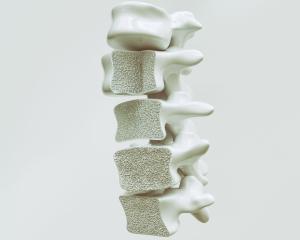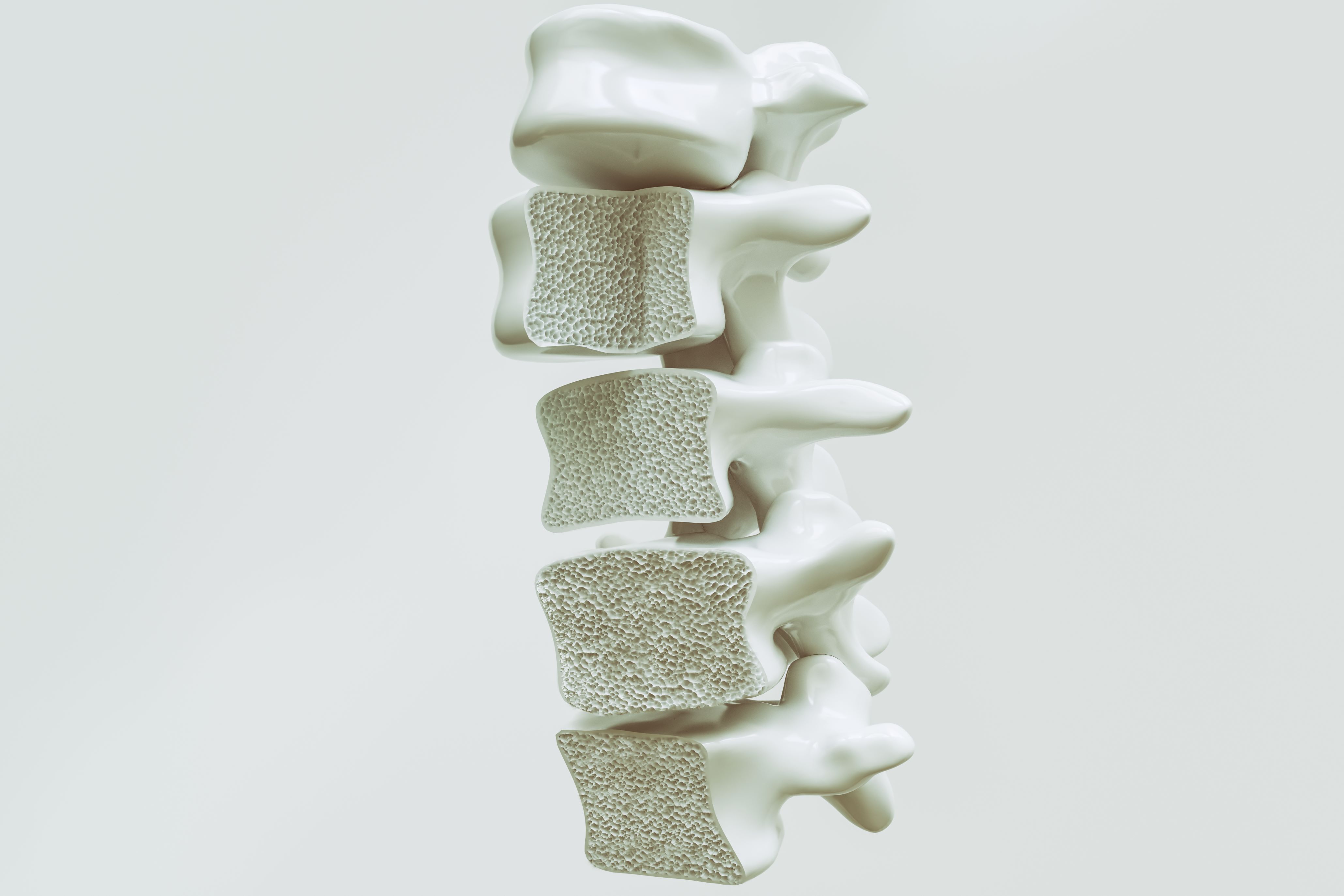-
Patient Resources
-
-
Services
-
-
Service Details
-
Proudly Part of Privia Health

Hotflashes - May 2025
Preventing Osteoporosis

Approximately half of all women in the United States 50 and older will break a bone from osteoporosis, a gradual thinning of the bones that leads to an increased risk in fractures. Women are more likely to develop this condition due to lower bone density naturally and loss of estrogen over time, but there are lifestyle changes you can make to lower your risk, which we’ll go over in today’s article.
Get the right vitamins and nutrients.
Certain vitamins, nutrients, and types of food are essential for healthy bones. One key nutrient you want to make sure you are getting enough of is calcium, and it’s never too early to start. Women younger than 50 should be getting 1,000 mg of calcium daily, and women over 50 should be getting 1,200 mg of calcium each day. Additionally, you need vitamin D for your body to absorb the calcium you’re taking in, so spending time outside, supplements, and fortified foods are a good idea. And while it’s a food group rather than a vitamin or nutrient, protein is an important part of bone health too as it can increase bone mineral density. Talk to your doctor about how much protein you should be eating for your age, gender, and weight.
Get moving.
Exercise is good for so many parts of our body, and our bones are no different. Exercise helps activate the cells in your body that are responsible for building bones, but there are certain types of exercise that are better for this than others. The first is weight-bearing exercise where you will carry the weight of your body against gravity. Good examples are running, dancing, walking, aerobics, hiking, and tennis. Resistance exercise, where you use weights, an elastic band, or water, to strengthen your muscles is also a great way to build bone. These exercises can also help you stay strong and maintain good balance, lowering your risk of falls and injury overall.
Avoid unhealthy habits.
The lifestyle choices you make, even very early on in your life, can affect your bone health in the future, so it’s best to avoid smoking, limit alcohol consumption, and maintain a healthy weight as early on as possible.
How to Manage High Blood Pressure

If you’ve been diagnosed with high blood pressure, it can be scary and overwhelming. High blood pressure can increase your risk of things like heart disease and stroke, and it can always be difficult to grapple with this kind of information. In today’s article though, we will look at some practical tips for how to manage high blood pressure.
Manage other conditions
Many people with high blood pressure also have other health conditions like diabetes. Managing diabetes and other conditions can help you be healthier overall and reduce your risk of high blood pressure.
Eat healthy foods.
Certain foods, like ones high in sugars or sodium, can increase your risk of high blood pressure. Making healthy meal and snack choices is key to managing high blood pressure, so work on incorporating more whole grains, lean proteins, and lots of fruits and veggies into your diet.
Exercise.
When your heart health is at risk due to high blood pressure, it’s more important than ever to take care of your heart, and one of the best ways to do that is through exercise. Engaging in physical activity regularly helps to keep both your heart and blood vessels strong, and along with eating healthily, it can also help you maintain a healthy weight, which is important for managing high blood pressure.
Stop smoking.
Smoking is really not good for any part of your body, but when looking at high blood pressure and heart health specifically, it can damage your blood vessels, increase your risk of high blood pressure, and increase chances of heart disease, heart attacks, and strokes. If you’ve never smoked, great, but if you do, now is a great time to quit.
Create a care plan with your healthcare team.
All of these lifestyle changes are great for lowering your high blood pressure, but for some people, it may not be enough. It’s important to work with your healthcare team on a plan that works for you. Some people may be able to lower it through lifestyle changes like those listed above, but some people may need the help of medication as well.
https://www.cdc.gov/high-blood-pressure/living-with/index.html
Grilled Chicken Salad

Ingredients:
- 2 boneless skinless chicken breasts (about 1 1/4 pounds)
- 1 tsp. ground coriander
- 1 tsp. dried oregano
- Kosher salt
- Freshly ground black pepper
- 7 Tbsp. extra-virgin olive oil, divided
- 4 Tbsp. red wine vinegar
- 1 Tbsp. freshly chopped parsley
- 4 romaine hearts, chopped
- 3 Persian cucumbers, thinly sliced
- 1 c. grape or cherry tomatoes, halved
- 2 avocados, sliced
- 4 oz. feta, crumbled
- 1/2 c. pitted kalamata olives, halved
Directions:
- Heat grill to medium-high. Season chicken with coriander, oregano, salt, pepper, and 2 tablespoons olive oil. Grill, covered, turning halfway through, until slightly charred and the thickest part of the breast registers 165ºF when probed with a thermometer, 18 to 22 minutes. Let rest for another 5 minutes, then slice.
- Meanwhile, make dressing. Whisk olive oil, red wine vinegar, and parsley in a small bowl and season with salt and pepper.
- Divide lettuce, cucumbers, tomatoes, avocado, feta, and olives among four serving bowls. Top with sliced chicken, then drizzle with dressing.
https://www.delish.com/cooking/recipe-ideas/a21097616/grilled-chicken-salad-recipe/
